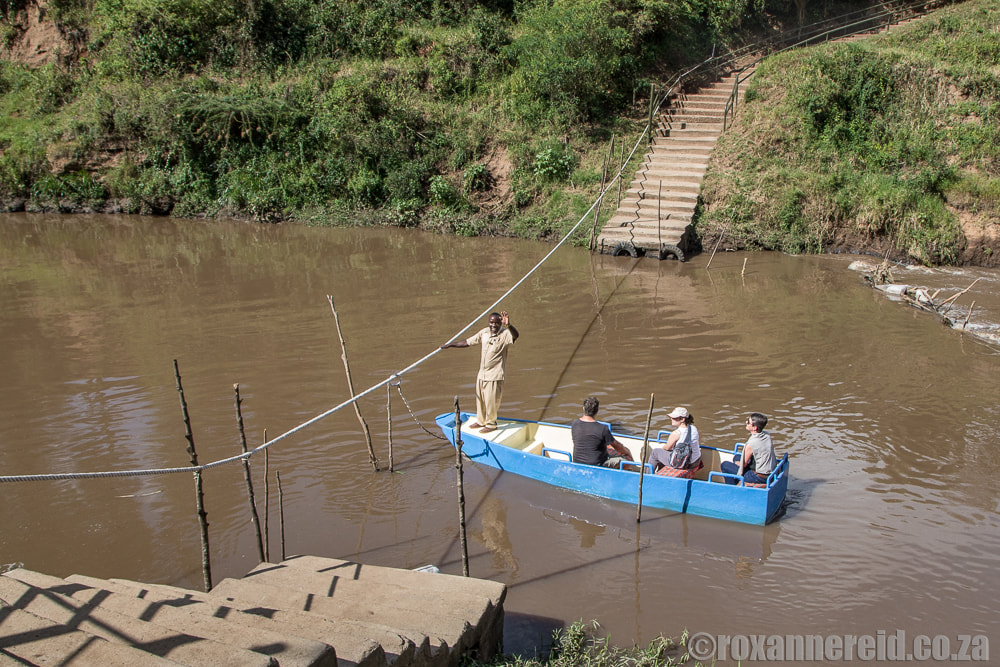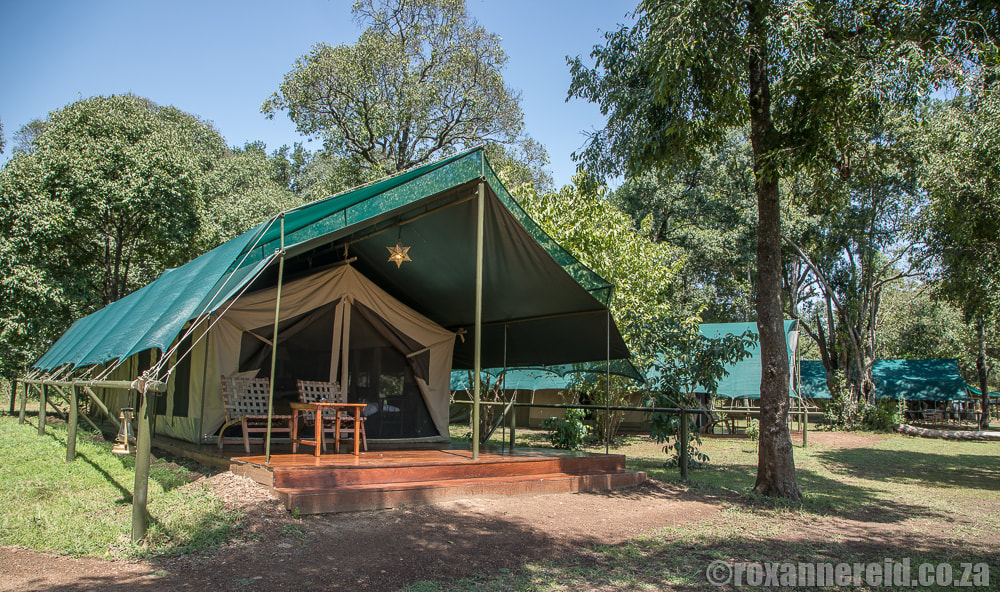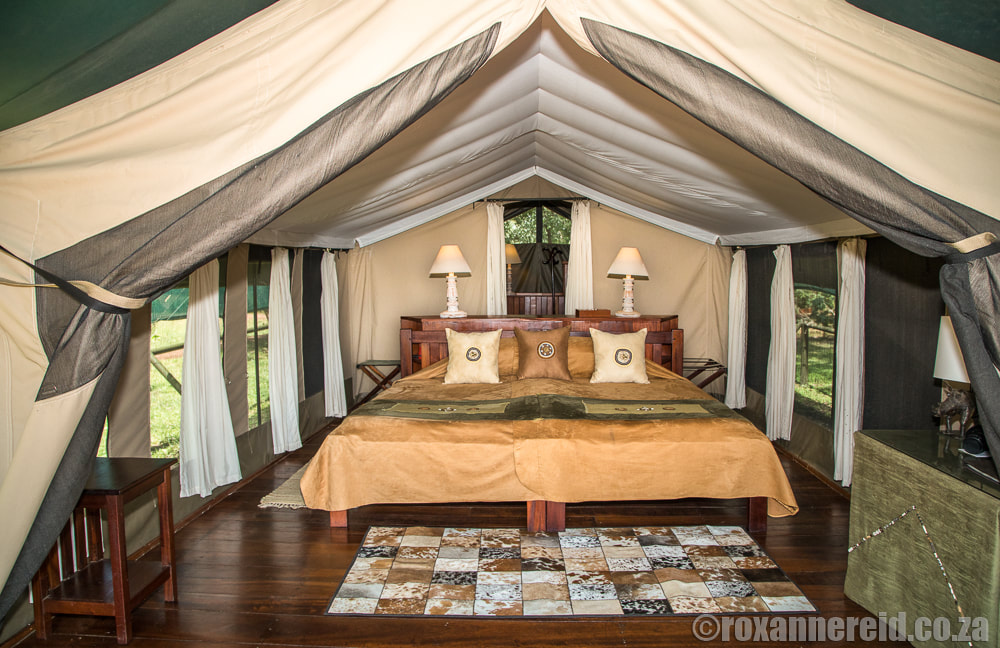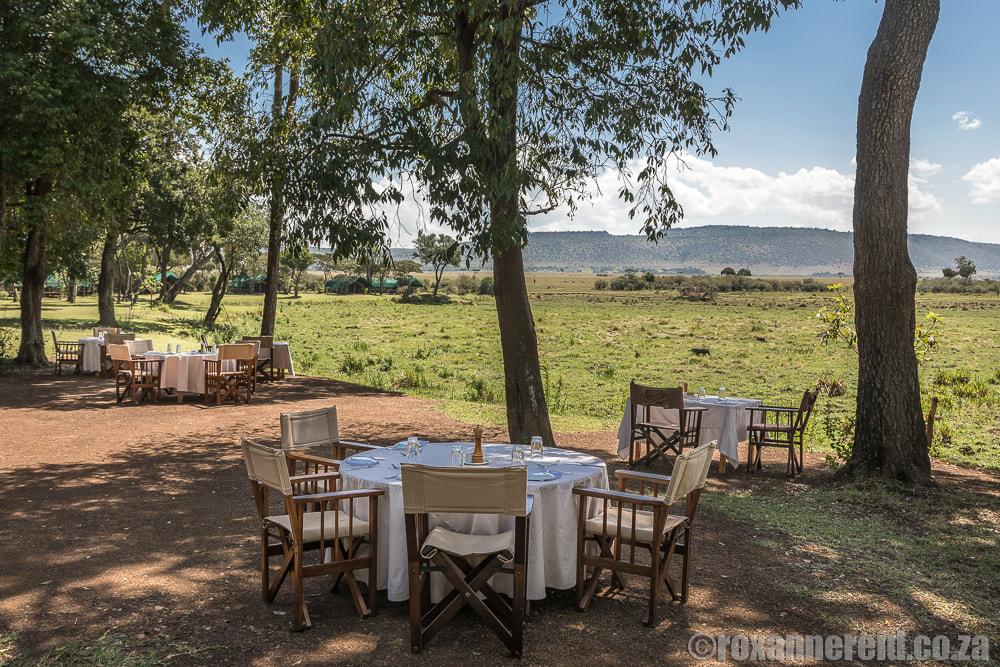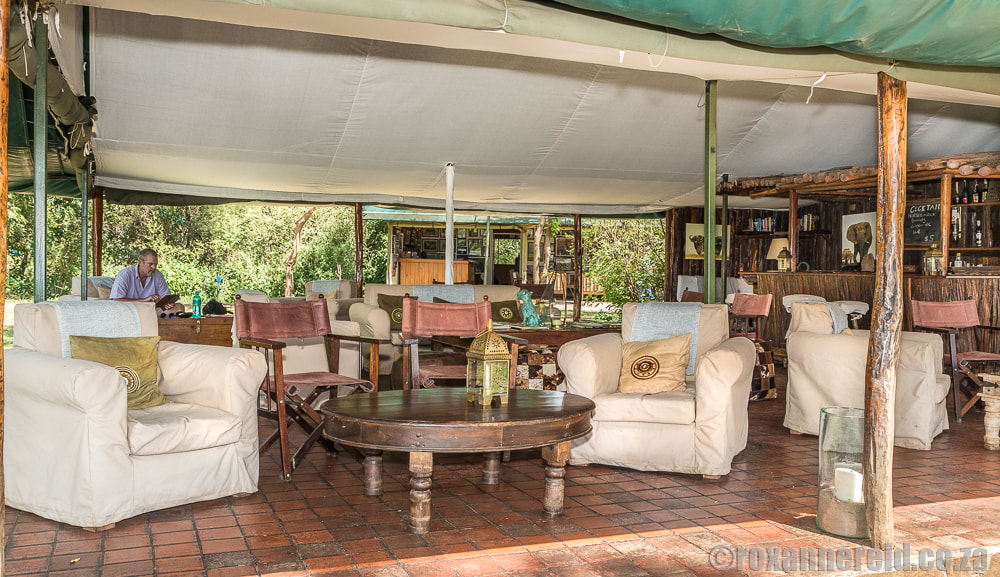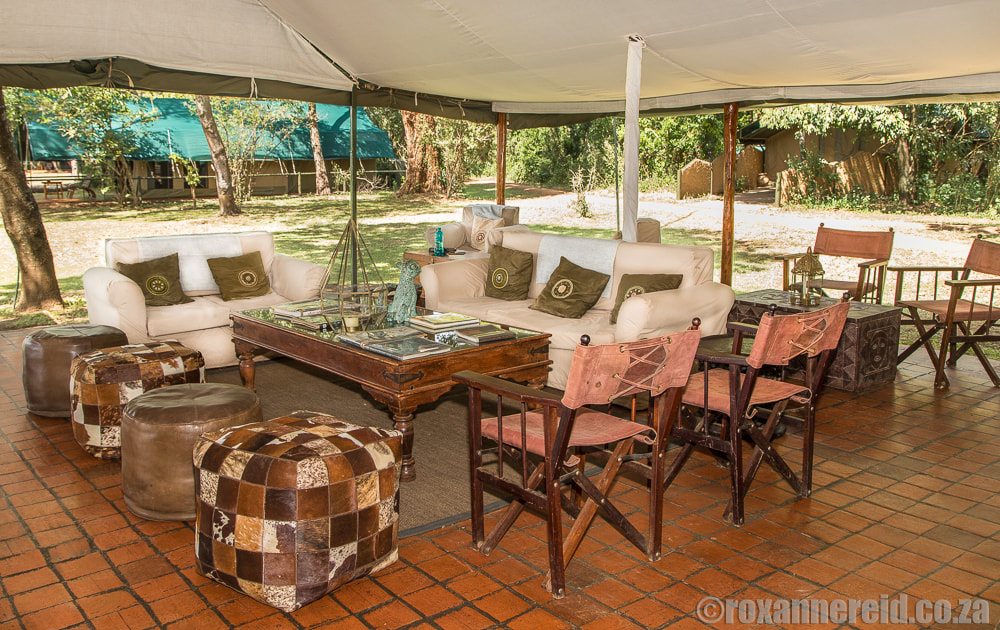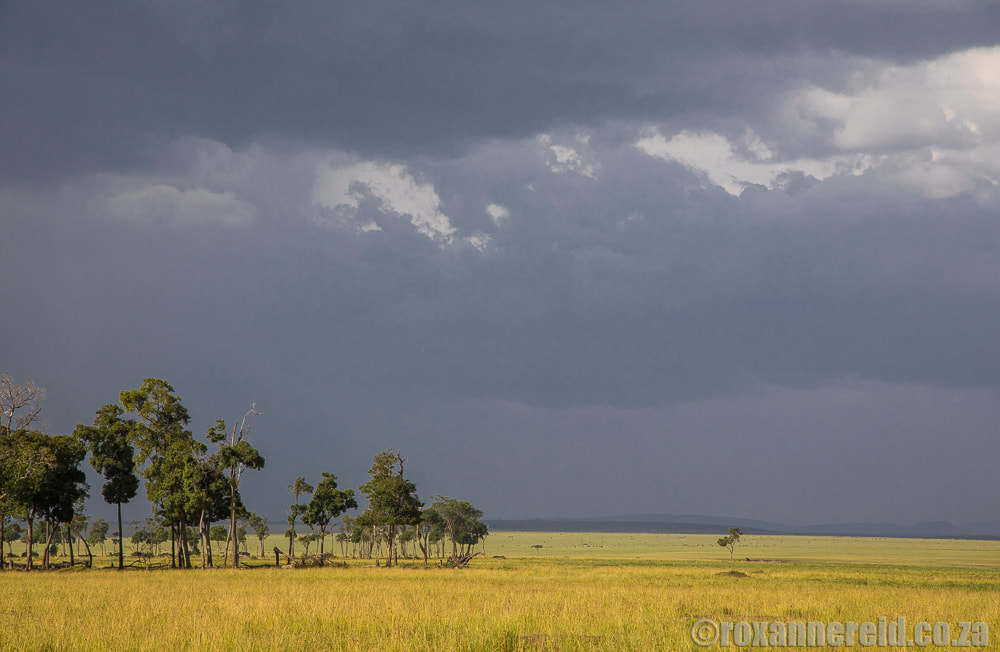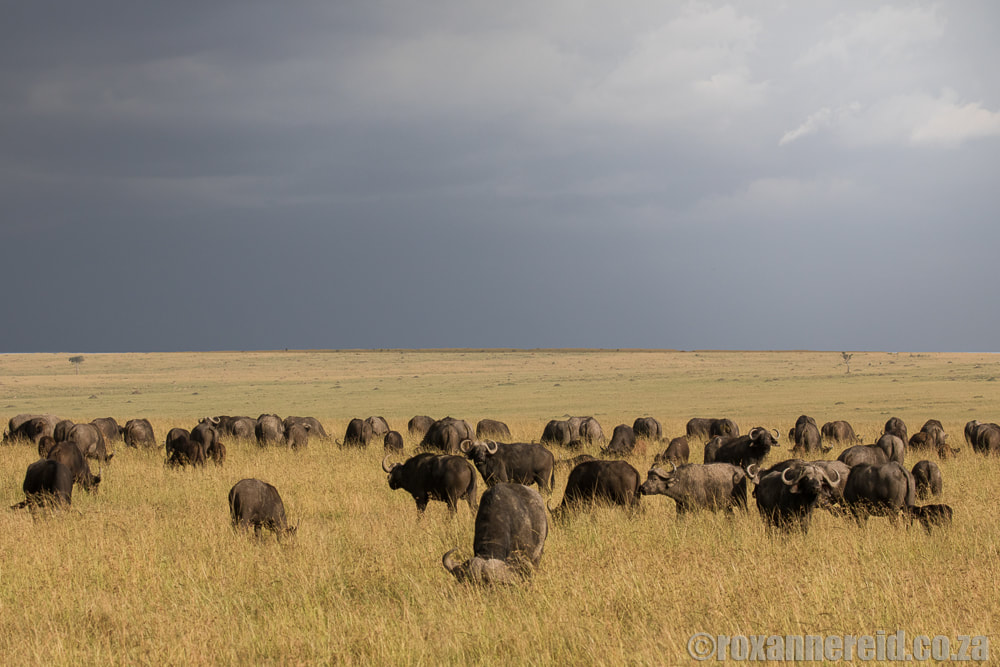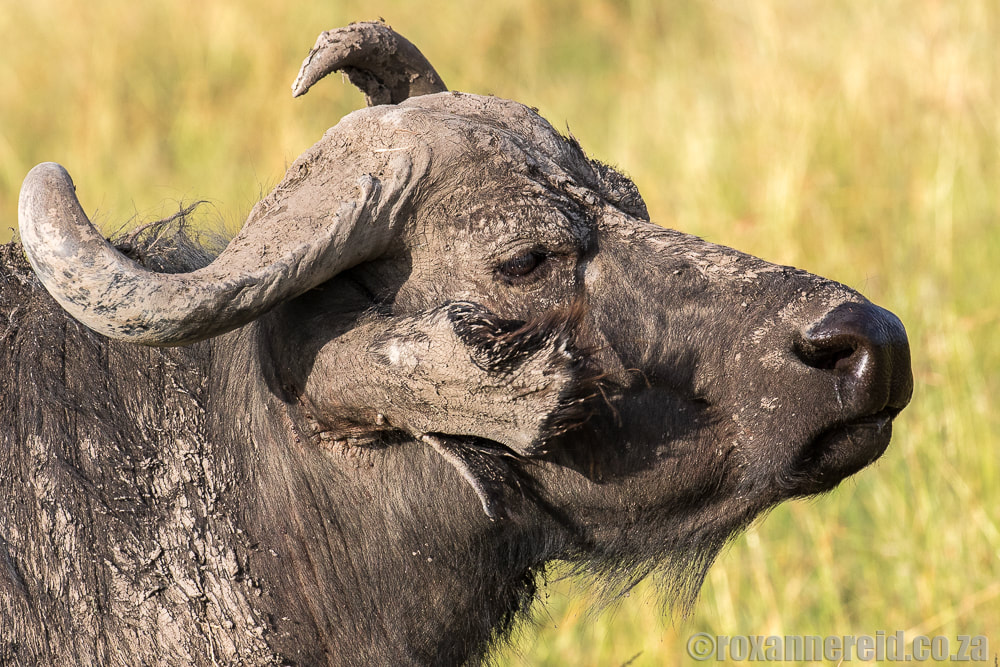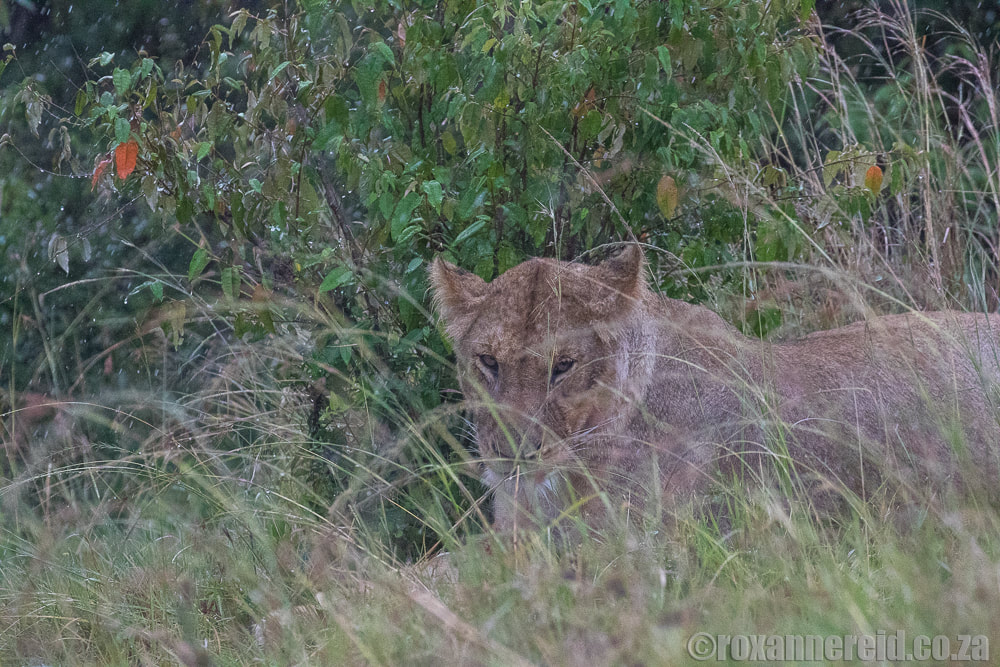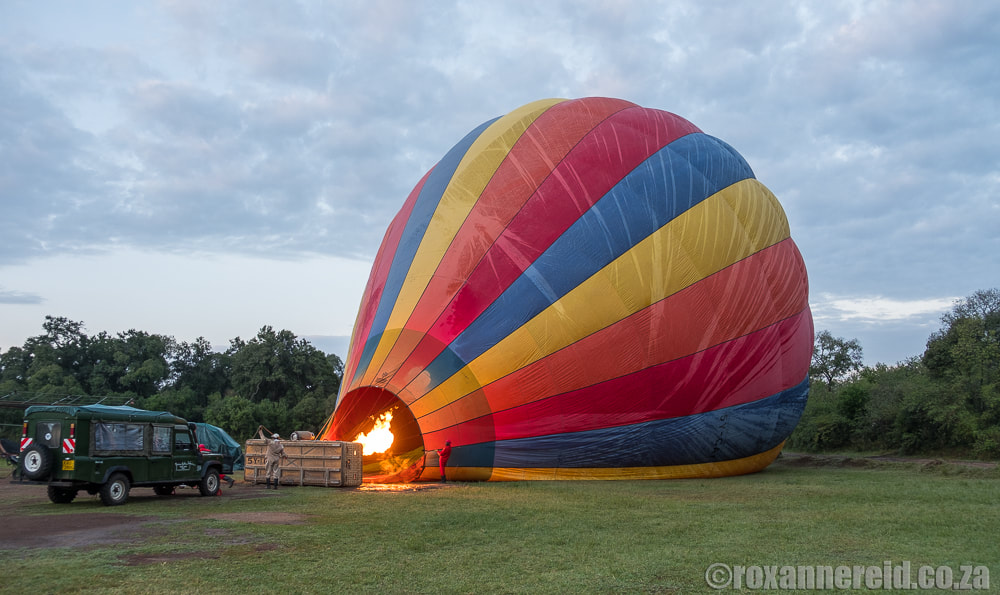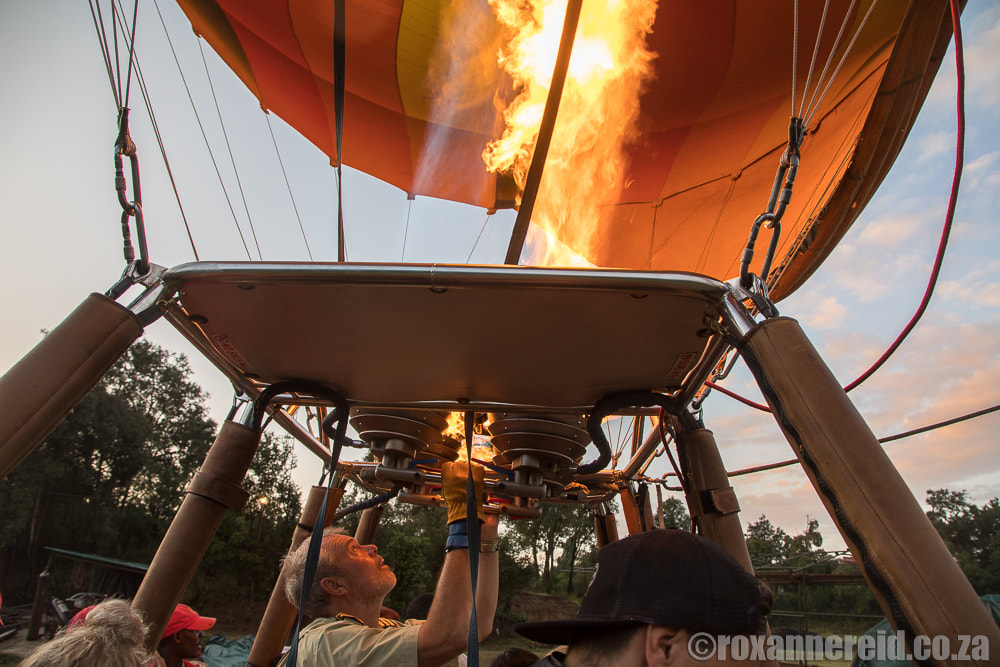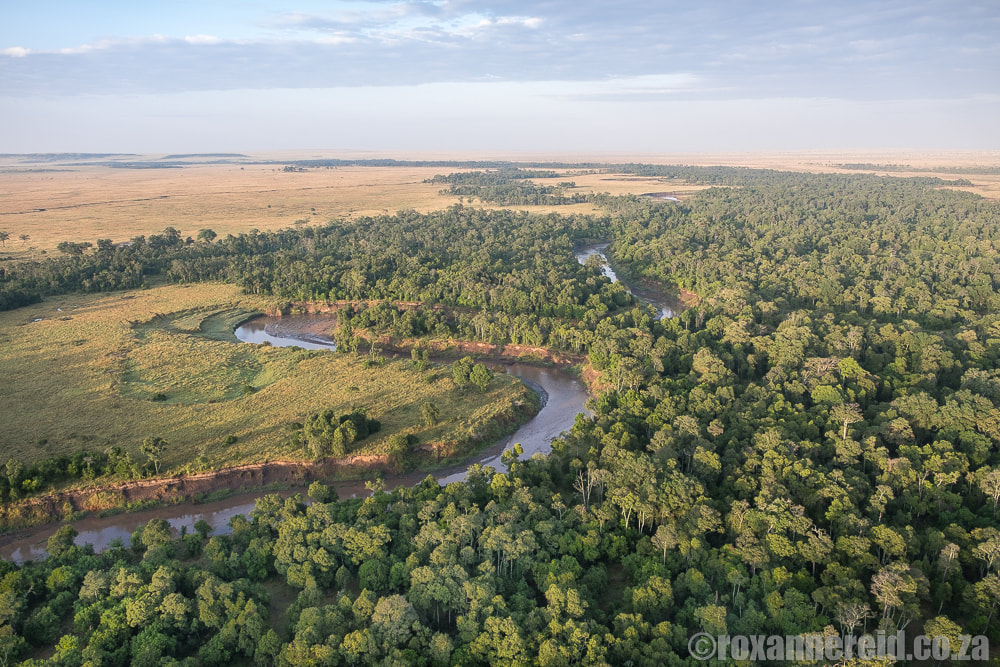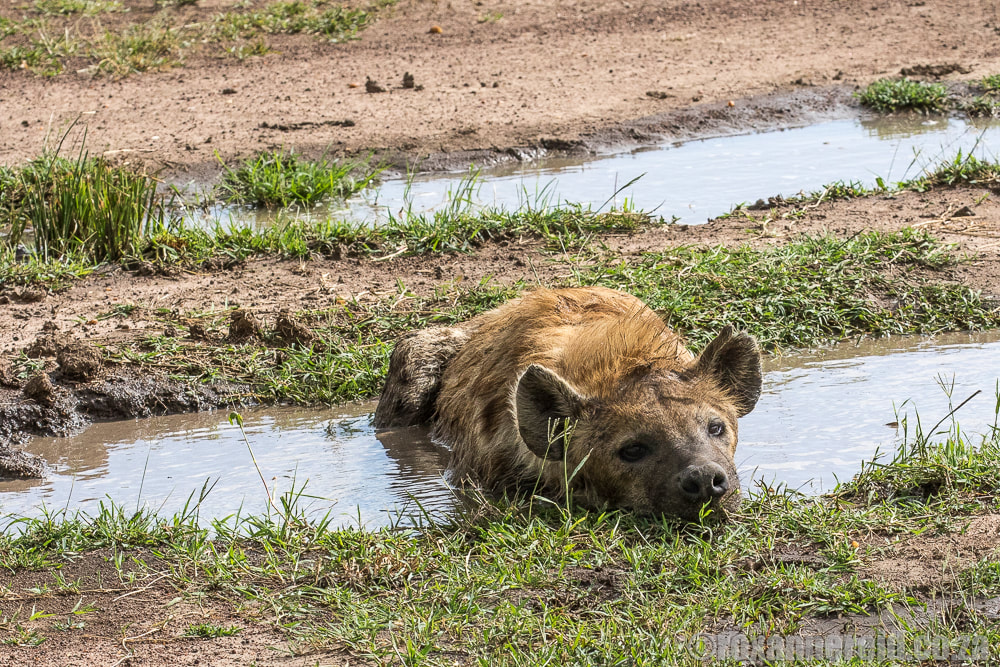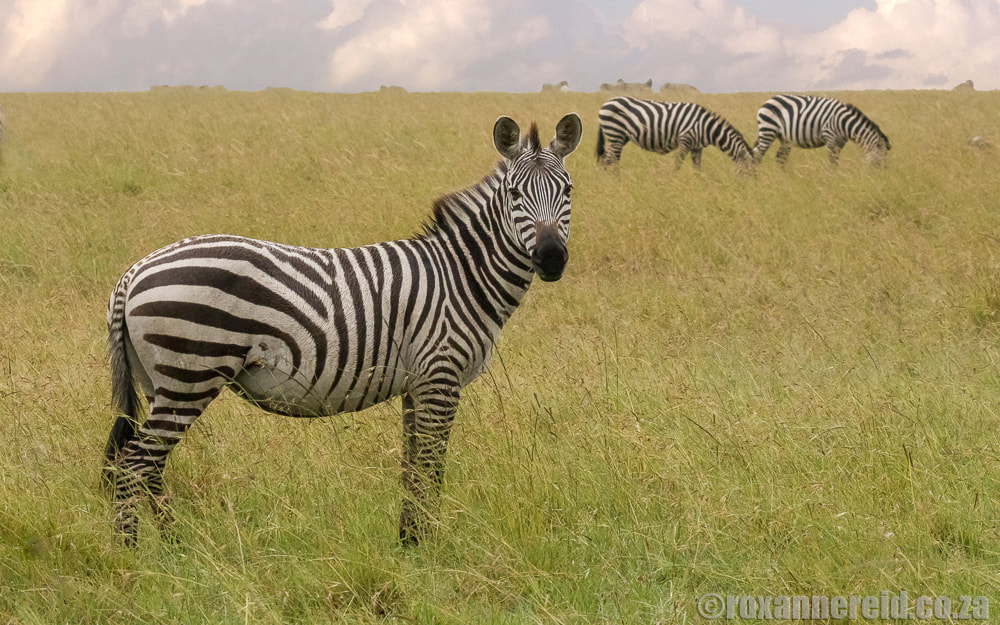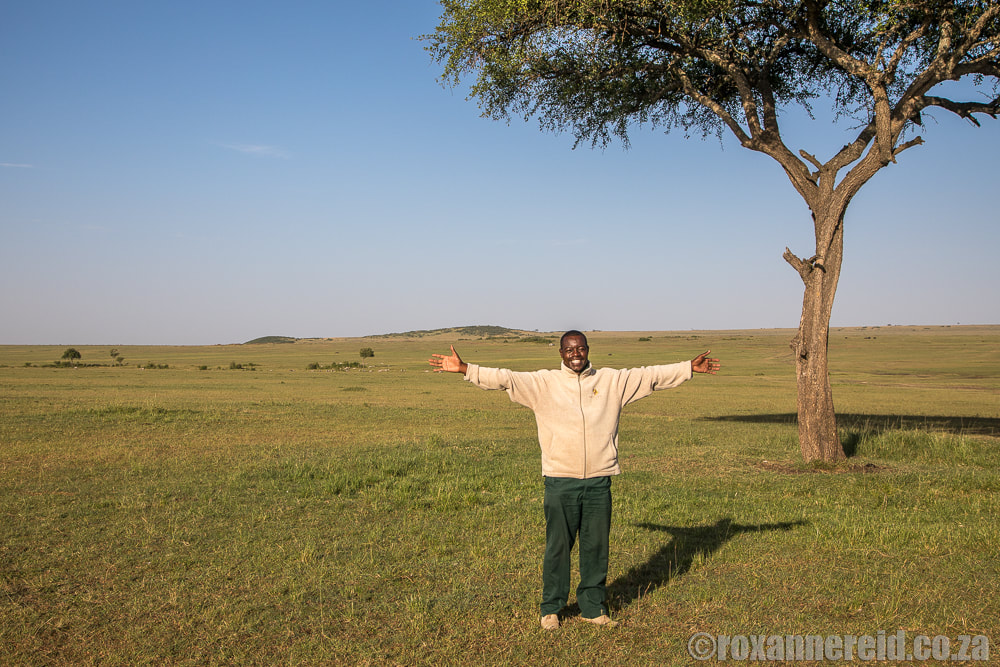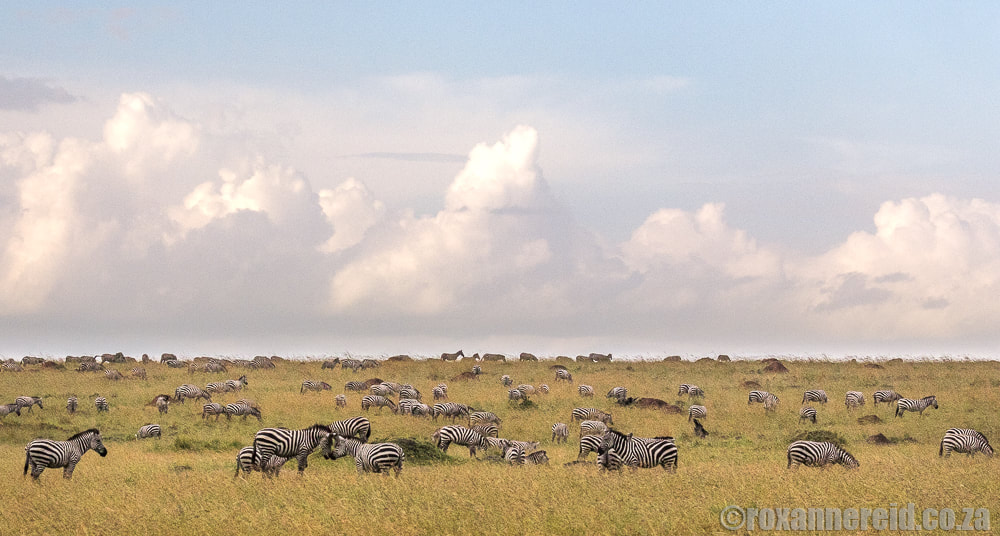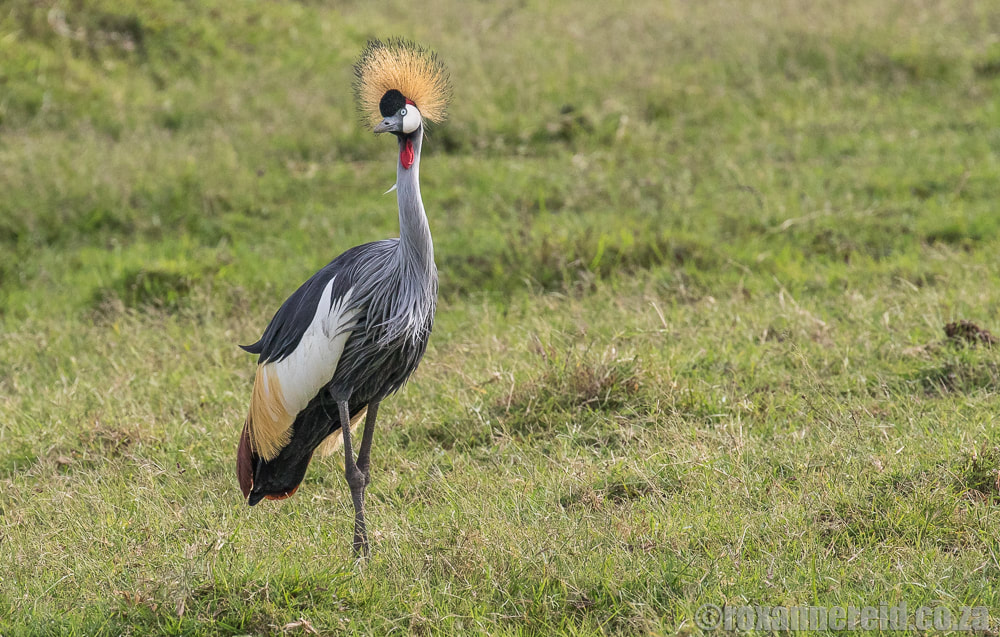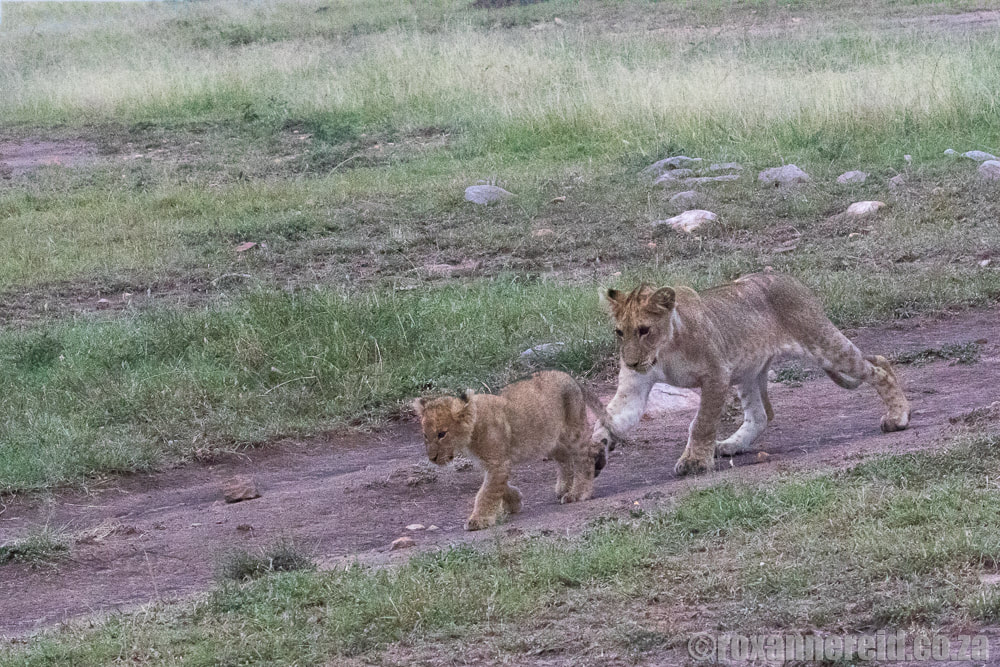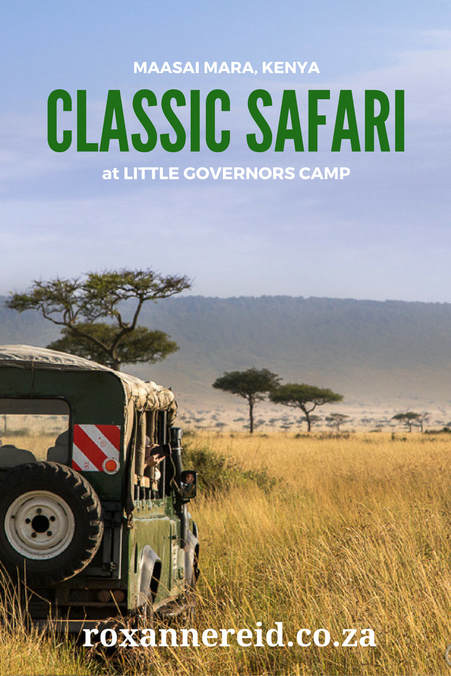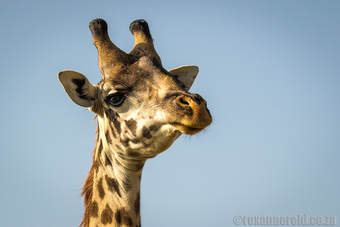
By Roxanne Reid
Imagine an unfenced safari camp just inside the famous Maasai Mara National Reserve in Kenya. Now imagine luxury, delicious food and good wildlife sightings – both in and out of camp. You’ve just imagined the classic safari world of Little Governors Camp.
Imagine an unfenced safari camp just inside the famous Maasai Mara National Reserve in Kenya. Now imagine luxury, delicious food and good wildlife sightings – both in and out of camp. You’ve just imagined the classic safari world of Little Governors Camp.
The approach to the camp is unusual. You cross the Mara River in a little ferry boat, pulled hand over hand along a rope, to get to camp on a plateau above the river. On our first day the 90-something steps down to the riverbank and up again on the other side had me huffing and puffing like an asthmatic steam engine. By the second day, I was tripping up and down like a mountain goat, happy to be active and working off some of the yummy food I’d been scoffing in camp.
Little Governors Camp – part of the Governors Camp Collection – is laid out in a curve under shady African green-heart, ebony and Senegal cherry trees. Meru-style tents are roomy and fitted with every luxury from flushing toilets to hot showers – even curtains.
We enjoyed lunch in the shade, looking out towards a waterhole and the plains where a lone giraffe sat, neck erect, and warthogs, Defasa waterbuck and zebra grazed. The staff said elephants sometimes come here too.
After lunch there was a chance for a snooze before the afternoon game drive, but I sat on our tent’s private deck and watched baboons feeding peacefully. Till a food fight broke out and there were a few seconds of frantic screaming and chasing. Then everything just as suddenly subsided into peace again.
Thunderstorm
On our first afternoon drive, guide Jackson Inganji gave us some insight into this 1510-square-kilometre national reserve. He introduced us to the African green-heart tree, or elephant pepper bark, that dominates the plains, and the flat-topped umbrella trees, or balanites, that create pools of shade for animals.
‘The word Mara means spotted,’ he explained, ‘and refers to it being dotted with lone trees and termite mounds.’
On our first afternoon drive, guide Jackson Inganji gave us some insight into this 1510-square-kilometre national reserve. He introduced us to the African green-heart tree, or elephant pepper bark, that dominates the plains, and the flat-topped umbrella trees, or balanites, that create pools of shade for animals.
‘The word Mara means spotted,’ he explained, ‘and refers to it being dotted with lone trees and termite mounds.’
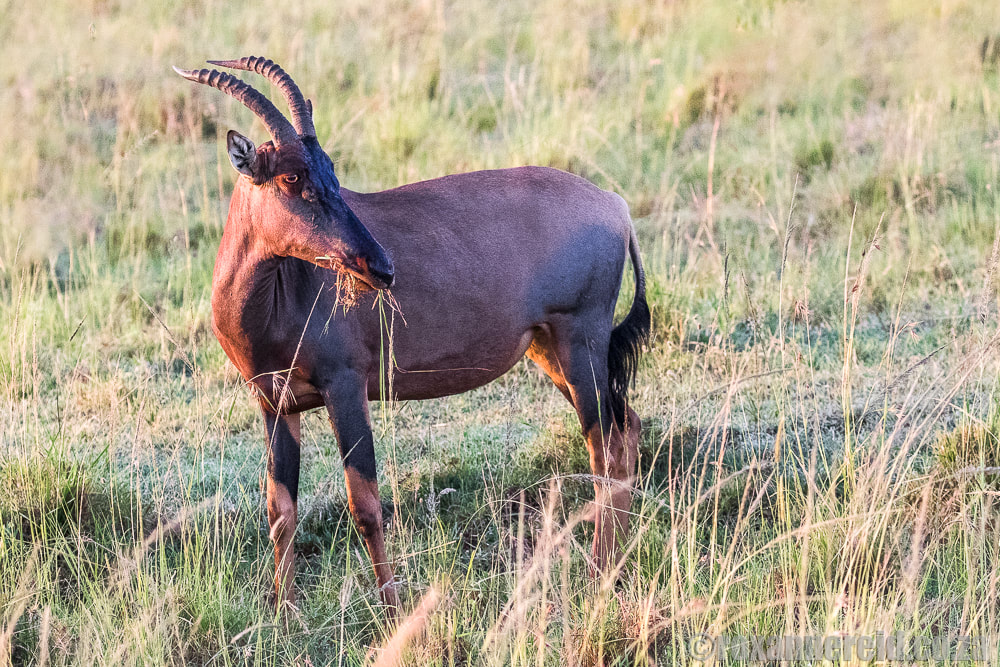 Topi
Topi Our first sightings were some topi (an East African cousin of the tsessebe), a pair of black-backed jackal, three elephants browsing with a crackle of branches, and a small clutch of spotted hyenas. A rosy-breasted longclaw stood tall on a termite mound and a sooty chat displayed for a female nearby, fluttering his wings in one spot in the air and calling insistently to prove his suitability for breeding.
We sat among a herd of some 500 grazing buffaloes with calves as storm clouds gathered on the horizon and the sky turned charcoal-grey. A couple of spotties came sniffing around, perhaps looking for an opportunity to nab one of the small calves.
Thunder cracked out over the plain. And then the rain came. We closed the roof hatch of the vehicle and hooked down the plastic windows as it bucketed down. Lightning streaked across the sky in the distance.
More rain. More thunder.
Two lionesses huddled next to a bush, licking their paws and enduring the downpour with half-closed eyes. They had the pinkish blush of blood on their faces so probably had a kill hidden behind the bushes.
More rain. More thunder.
Two lionesses huddled next to a bush, licking their paws and enduring the downpour with half-closed eyes. They had the pinkish blush of blood on their faces so probably had a kill hidden behind the bushes.
Although we later got soaked getting back to our tent (despite being supplied with shawls and umbrellas), it was wonderful to experience some much-needed rain. This year not much rain fell during the so-called ‘long rains’ in April and May.
After supper we found three hippos grazing near our tent – a reminder why we needed askaris to escort us after dark – and the night was filled with the gruff honking of hippos, the whooping of hyenas and the distant roar of lions.
Hot air ballooning
After supper we found three hippos grazing near our tent – a reminder why we needed askaris to escort us after dark – and the night was filled with the gruff honking of hippos, the whooping of hyenas and the distant roar of lions.
Hot air ballooning
At first light next morning we took to the air in a hot air balloon with Governors Balloon Safaris. Shooting fire into the enormous balloon to give us lift, we flew low over antelope, hyena, buffalo and giraffe, then climbed to 300m for an eagle’s eye view of the reserve with its winding river before coming gently back to earth for a champagne breakfast.
It was a classic Mara experience, floating over the winding Mara River, forest and open plains dotted with trees; so special that I wrote a separate piece about it for Getaway magazine - you can read it here.
Game drive
On our afternoon game drive, we found two hyenas, each half-submerged its own pool of water after the previous afternoon’s storm. Another three loitered near a den burrow, one comically poking its head out of the hole.
On our afternoon game drive, we found two hyenas, each half-submerged its own pool of water after the previous afternoon’s storm. Another three loitered near a den burrow, one comically poking its head out of the hole.
I kept muttering that the ‘plains zebra’ we were seeing here were nothing like those we know from Southern Africa. They had no shadow stripes, and their stripes went all the way around their belly and down to the hooves.
Jackson accepted the challenge and began rootling through his field guide. They are, he revealed, indeed both Burchell’s/plains/common zebra, but the ones here are Böhms race/subspecies, whereas those in Southern Africa are Chapman’s. Puzzle solved.
Jackson accepted the challenge and began rootling through his field guide. They are, he revealed, indeed both Burchell’s/plains/common zebra, but the ones here are Böhms race/subspecies, whereas those in Southern Africa are Chapman’s. Puzzle solved.
The wind came up and whipped across the plains as lightning flashed. Then the rain came and again we had to close the top and let down the see-through plastic sides. This time, though, it rained quite hard for 15 minutes and then stopped.
So much wildlife
A surreal moment was being surrounded by hundreds of resident wildebeest on the plains – our own mini migration, even though it would be a few weeks before the migration actually arrived in this part of the reserve.
So much wildlife
A surreal moment was being surrounded by hundreds of resident wildebeest on the plains – our own mini migration, even though it would be a few weeks before the migration actually arrived in this part of the reserve.
Although they resemble one big herd, they’re in fact separate small groups of cows and calves presided over by a male. The males were grunting to assert their dominance in this rutting season, giving us an inkling of what the racket must be like with some 1.5m wildebeest during the peak of the migration. Jackson told us that from the end of July to September, when the migration is in full swing, you don’t see elephants here because they hate the noise.
Coke’s hartebeest, olive baboons, a hippo, woolly-necked storks, large zebra herds, some elephants, ground hornbills, grey crowned cranes, a dozen hyenas in a furry huddle – the steady stream kept our spirits up and our binos busy.
Lion jackpot
Then near Double Crossing we found some lappet-faced and hooded vultures on the ground and the day’s highlight – 12 lions on the move, including one young male, four lionesses and various cubs. They stopped to drink water and – as lions do – lie around doing nothing.
Ten minutes later, another female with a two-and-a-half-month-old cub joined them. The little one flopped down, tired from a long journey on stubby little legs. One of the lionesses roared to pride-mates further away over a koppie, but most of them just chilled. Then she set off and the rest followed, a bigger cub swatting mischievously at the little one’s back legs to trip it up.
Then near Double Crossing we found some lappet-faced and hooded vultures on the ground and the day’s highlight – 12 lions on the move, including one young male, four lionesses and various cubs. They stopped to drink water and – as lions do – lie around doing nothing.
Ten minutes later, another female with a two-and-a-half-month-old cub joined them. The little one flopped down, tired from a long journey on stubby little legs. One of the lionesses roared to pride-mates further away over a koppie, but most of them just chilled. Then she set off and the rest followed, a bigger cub swatting mischievously at the little one’s back legs to trip it up.
It was getting dark and we had to get back to camp so we couldn’t follow. But the day had one final gift for us, a Boscia angustifolia – a cousin to Southern Africa’s shepherd tree – against a background of a sky dark with rain, and herds of zebra, wildebeest and Thompson’s gazelles silhouetted against crimson clouds as the sun set.
Note: I was a guest of the Little Governors Camp for two nights, but I was given free rein to write what I chose.
Did you enjoy the article? Pin this image!
Note: I was a guest of the Little Governors Camp for two nights, but I was given free rein to write what I chose.
Did you enjoy the article? Pin this image!
More about Kenya
Copyright © Roxanne Reid - No words or photographs on this site may be used without permission from roxannereid.co.za
Copyright © Roxanne Reid - No words or photographs on this site may be used without permission from roxannereid.co.za
